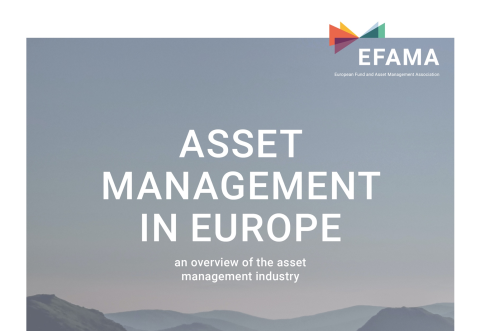Sustainable Finance
The asset management industry plays a key role in meeting the objectives of the European Green Deal to make the EU’s economy sustainable. Our members integrate ESG considerations across their risk management processes and investment decisions. They develop sustainable investment products and foster transparency to fight greenwashing. This increases choice, trust and, in turn, retail investors’ participation. Overall, such efforts mobilise capital towards a fair and just transition to a climate-neutral economy by 2050.
EFAMA actively contributes to the development and implementation of EU’s sustainable finance initiatives. Among them are a comprehensive transparency framework for financial market participants, standards and labels for green financial products, classification of green economic activities and policies enhancing corporate sustainability reporting.
EFAMA reply to JRC CP on 3rd technical report: Development of EU Ecolabel Criteria for Retail Financial Products
Article 8 of the Taxonomy Regulation - EFAMA reply to ESMA CP on draft advice to EU Commission
In its support of the development and implementation of the Taxonomy Regulation, EFAMA believes that reporting on the level of alignment with the Taxonomy by non-financial and financial undertakings is essential to strengthening market integrity around sustainability issues.
EFAMA's reply to ESAs Survey on templates for environmental and/or Social Financial Products under SFDR
EFAMA, the voice of the European investment management industry, believes that, for retail clients, standardised disclosure of information can improve the comparability of financial products that promote environmental and/or social characteristics or have a sustainable objective. It will also contribute to the broader policy objectives of the Sustainable Finance Disclosures Regulation (SFDR) to enhance transparency towards end-investors, hold market participants accountable and fight greenwashing.
ESG investing in the UCITS market: a powerful and inexorable trend
The European Fund and Asset Management Association (EFAMA) has published its latest Market Insights report titled “ESG Investing in the UCITS Market – A powerful and inexorable trend”. The report looks at the major trends in the ESG UCITS market, the impact of the coronavirus pandemic, and the behaviour of ESG and non-ESG funds.
EFRAG sets solid foundations for the establishment of mandatory EU sustainability reporting standards
The European Fund and Asset Management Association (EFAMA) calls on the European Commission to reflect EFRAG´s recommendations for mandatory European Sustainability Reporting Standards in the upcoming NFRD review.
European Statistics Q4 2020 | 2020 Trends | Inflows into UCITS and AIFs bring European fund assets to an all-time high
The European Fund and Asset Management Association (EFAMA) has today published its Investment Fund Industry Fact Sheet for Q4 of 2020, together with an overview of the full year.
The main developments through the quarter are as follows:
Market Insights #18 - Sustainable Equity UCITS
This report looks specifically at the evolving trends of the equity asset class of sustainable UCITS, whose share is the highest (53%) in total sustainable UCITS funds. It highlights their role as investment vehicles in facilitating the green transition. The universe of sustainable equity UCITS funds is defined based on Morningstar’s classification of sustainable financial instruments1. This means funds must claim to have a sustainability objective, and/or use binding ESG criteria for their investment selection.
Sustainable Investing Explained in 9 Questions
EFAMA launches its new brochure "Sustainable investing explained in 9 questions".
Despite the growing interest and importance of sustainable investing, most EU citizens often find it difficult to navigate this relatively new investment landscape.
In the brochure we explore :
EFAMA Asset Management Report 2022
EFAMA's latest edition of its 'Asset Management in Europe' report provides an in-depth analysis of recent trends, focusing on where investments funds and discretionary mandates are managed in Europe.
The asset management sector is a crucial one for the European economy, with a key role to play in financing the green transition:

































